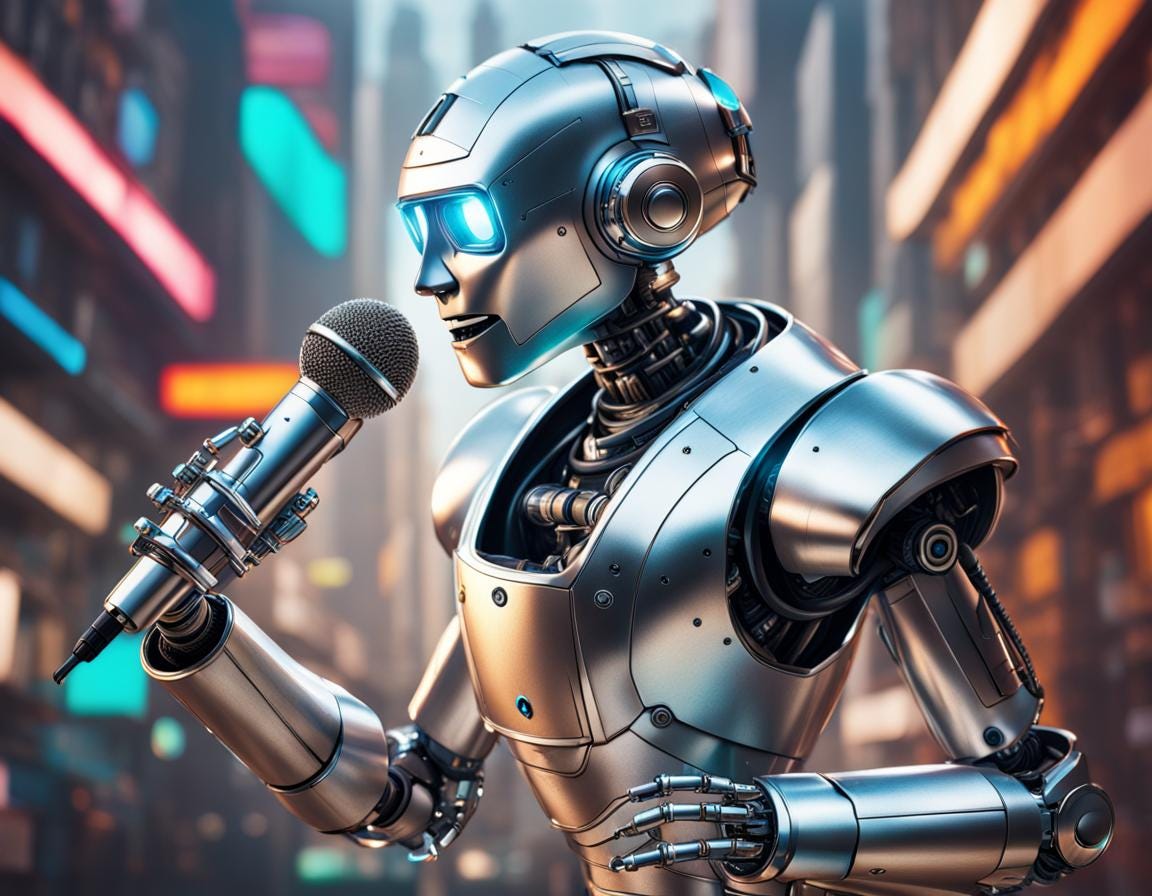I watched a fascinating video last week, in which a sound engineer analyzed a woman’s vocal performance, seemingly recorded live in her home. The title of the TikTok was “Her voice control is on a different level!”
What the engineer finds is that this was not a live performance, and in fact the vocal had been pitch-corrected. He proves it with software that shows the singer’s uncanny accuracy, with difficult intervals nailed right to true pitch. This is impossible for even the best professional singers, and in fact it’s the slight inaccuracies that bring real life to a performance.
He goes on to prove that the singer is lip-syncing to the prerecorded vocal, noting certain tells. She mimes late at one point after an instrumental break, forgetting the timing of her recorded entrance.
The question the engineer asks is, Why? He’s seen the same singer in her busking videos, where there’s been no pitch correction, and she has a great voice. Why denaturalize this performance and pretend she's spontaneously nailing a song in her bedroom? He likens it to photo filters that make faces look perfect and wonders if this is just something young people are obsessed with. Perfection.
Though this isn’t a case of AI replacing human skills, it’s a good example of how technology changes our whole understanding of … reality. As the engineer titles his video, “I REALLY don’t know WHAT to think about music anymore!”
If you’ve ever seen the deepfake Tom Cruise, you know how uncannily real this kind of thing can appear. It’s easy to foresee a time when we really won’t know what’s real and what’s computer-generated, and it will cause problems when people like Donald Trump (as he’s already done) claim that embarrassing videos of him are actually AI.
Likewise, the recent Hollywood SAG strike revolved in part around studios’ use of AI in the future. Everyone knows it’s a done deal, but actors want to be in a position to consent to their images being used in AI and to be paid fairly when they do give permission. The new contract apparently resolves these issues, but you have to wonder how soon Hollywood will be able to dispense with live actors altogether.
It’s the same with music, though things are still fairly primitive on that front. Inexpensive AI music will eventually dominate streaming services, however, and the burden of having to pay artists for their work will slowly fade. It’s entirely possible that people will ultimately forget what real performance sounds like, with human nuance and musical virtuosity. Then again, AI is always learning, and it might someday factor in the human qualities.
We already know Amazon has been flooded with AI-generated books, and though the quality of them is negligible, they contribute to a dilution of publishing standards that makes it hard for human writers to practice their art. Indie publishing was difficult enough before ChatGPT came along. Now we’re competing with AI charlatans.
All this reminds me of the theory that the great Dutch painter, Vermeer, might have used a camera obscura to produce his almost photorealistic images. Just another case of an artist using the most advanced technology at hand. We might look back one day and wonder what all the fuss about AI was. It might help artists make superior works. It might be a tool and not the be all and end all in production. In fact, this could be a watershed moment, but we’re too afraid of the robots taking over to see it.
No, wait. I forgot. Capitalism.
These really are the end days for authenticity in arts and entertainment.





Yup, you can always count on capitalism to ruin any otherwise beneficial technologies. What are the benefits of AI to humanity when all promoters talk about is how AI can save money by eliminating the need for humans in music and art? Our technology is far more advanced than our developmental maturity.